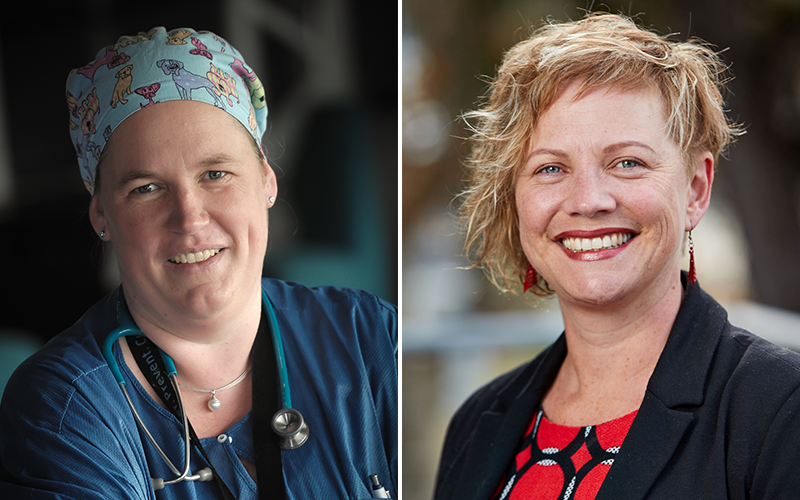Search
Research
N95-masks to protect health care workers: Is the new fast fit-test protocol cutting corners?Britta Regli-von Ungern-Sternberg AM FAHMS MD, PhD, DEAA, FANZA Chair of Paediatric anaesthesia, University of Western Australia; Consultant
Research
"Cannot intubate, cannot oxygenate": A novel 2-operator technique for cannula tracheotomy in an infant animal model-a feasibility studyEvidence regarding optimal management of the "Cannot Intubate, Cannot Oxygenate" (CICO) scenario in infants is scarce. When inserting a transtracheal cannula for front of neck access direct aspiration to confirm intratracheal location is standard practice.
Research
Impact of a revised postoperative care plan on pain and recovery trajectory following pediatric tonsillectomyA previous cohort of adenotonsillectomy patients at our institution demonstrated moderate-severe post-tonsillectomy pain scores lasting a median (range) duration of 6 (0-23) days and postdischarge nausea and vomiting affecting 8% of children on day 1 following surgery. In this subsequent cohort, we evaluate the impact of changes to our discharge medication and parental education on post-tonsillectomy pain and recovery profile.
Research
The impact of surgical cancellations on children, families, and the health system in an Australian paediatric tertiary referral hospitalReasons for elective surgery cancelations and their impact vary from one institution to another. Cancelations have emotional and financial implications for patients and their families. Our service has a particularly broad and geographically diverse patient population; hence, we sought to examine these impacts in our service.
Research
A comparison of videolaryngoscopy using standard blades or non-standard blades in children in the Paediatric Difficult Intubation RegistryThe design of a videolaryngoscope blade may affect its efficacy. We classified videolaryngoscope blades as standard and non-standard shapes to compare their efficacy performing tracheal intubation in children enrolled in the Paediatric Difficult Intubation Registry.
Research
The plural of anecdote is not data, please mind the gapThe COVID-19 pandemic introduced challenges to everyone in society but particularly so to every aspect of medical practice. It is bewildering how quickly the profession has had to respond to rapidly changing clinical landscape. Our well-established methods involve collecting and analyzing data to generate an evidence base which is then disseminated and implemented into routine clinical practice.

The vision of the Perioperative Medicine Team is to make discoveries that will improve children’s perioperative care and lead to global practice change.

News & Events
Paediatric anaesthetist named a WA Young Tall PoppyA leading paediatric anaesthetist and researcher focused on making anaesthesia safer and more comfortable for children has been named a 2022 Western Australian Young Tall Poppy.
Research
Impact of pediatric anesthesia management on cancer outcomes in children—a narrative reviewThe relationship between anesthetic technique and pediatric oncological outcomes is an emerging field of interest. With significant improvements in childhood cancer survival in recent decades, there is an increased focus on optimizing the quality of survival and reducing the incidence of metastasis and recurrence. The aim of this narrative review article is to investigate and consolidate the current available evidence assessing the immunomodulatory effects of anesthesia in the pediatric oncology population.
Research
Children's Anxiety in the Perioperative Environment: A Qualitative Exploration With Children, Parents and Staff at a Tertiary Paediatric HospitalPerioperative anxiety is a common and distressing aspect of anaesthesia for many children, resulting in management challenges at the time of anaesthesia and potential physical and psychological adverse outcomes. We conducted this qualitative phenomenological study to explore the perspectives of children, parents and staff on perioperative anxiety in our institution. Planned recruitment was 20 each of children who had undergone elective anaesthesia, their parents and staff.
